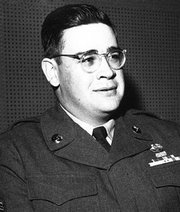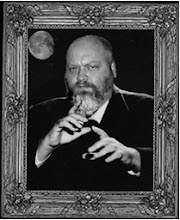They don't make men like this anymore...
 BOISE, Idaho - David Bleak, a Korean War medic who received the Medal of Honor for rescuing a comrade amid hand-to-hand combat in 1952, has died. He was 74.
BOISE, Idaho - David Bleak, a Korean War medic who received the Medal of Honor for rescuing a comrade amid hand-to-hand combat in 1952, has died. He was 74.Bleak died Thursday at Lost Rivers District Hospital in Arco of complications from emphysema, Parkinson's disease and diabetes, family members said.
Bleak was a 20-year-old sergeant in the medical company of the 223d Infantry Regiment, 40th Infantry Division, when he volunteered to go with a reconnaissance patrol, U.S. Army records say.
The Army's description of his actions on June 14, 1952, said Bleak killed two of the enemy with his bare hands and a third with his trench knife, and then shielded a comrade from the impact of a grenade that had fallen near the man's helmet.
Though he was wounded in the leg, Bleak began to carry the injured soldier, the medal citation said. Attacked by two enemy soldiers with bayonets, "he grabbed them and smacked their heads together, then carried his helpless comrade down the hill to safety."
Bleak returned to the U.S. soon after. In 1953, President Eisenhower awarded him the Medal of Honor, the nation's highest military honor, at a White House ceremony.
Born in Idaho Falls in 1932, Bleak enlisted in the Army at age 18. He was singled out for medic training because he was tall and strong, said his son Bruce Bleak of Moore.
After his military service, Bleak worked as various jobs, including running a dairy farm and serving as a technician at the Idaho National Laboratory, a nuclear research compound, his son said.
Bruce Bleak called his father a humble man who felt others had acted just as courageously but without recognition.
"He always said he carried the medal for them as well," the younger Bleak said.
Bleak is survived by his wife of 45 years, Lois; three sons; a daughter; two brothers; nine grandchildren; and six great-grandchildren, Bruce Bleak said.


0 Comments:
Post a Comment
<< Home